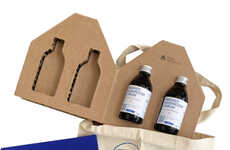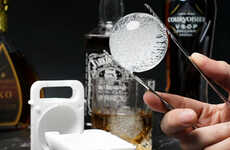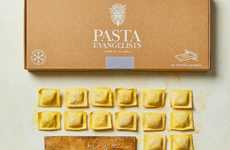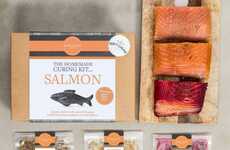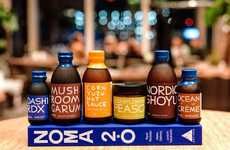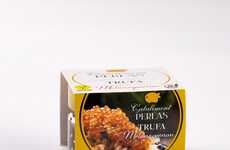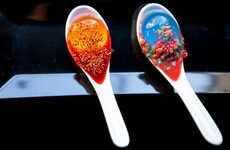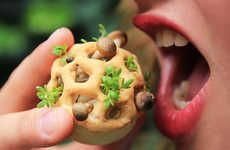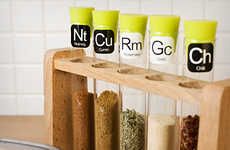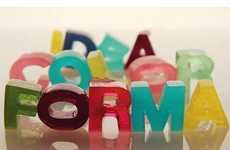
Spherification Kits by El Bulli
Marissa Brassfield — December 3, 2008 — Lifestyle
References: texturaselbulli & weheartstuff
If the phrases ‘El Bulli,’ ‘Ferran Adrià,’ ‘Wylie Dufresne,’ or ‘molecular gastronomy’ mean anything to you or someone you know, these spherification kits are a must for your holiday wish list.
Molecular gastronomy is the practice of using scientific chemicals and methods to manipulate food into unexpected forms. Chef Ferran Adrià pioneered molecular gastronomy at his restaurant El Bulli, and Adrià has made DIY spherification kits available for sale from his website.
With these spherification kits, you can turn any liquid into a gel-like solid sphere. Naturally, Adrià proposes some unusual combinations for a sphere, like Spherical Tea Ravioli or a Hot Spherical Asparagus Egg. The kits come complete with the chemicals you’ll need as well as the utensils.
Molecular gastronomy is the practice of using scientific chemicals and methods to manipulate food into unexpected forms. Chef Ferran Adrià pioneered molecular gastronomy at his restaurant El Bulli, and Adrià has made DIY spherification kits available for sale from his website.
With these spherification kits, you can turn any liquid into a gel-like solid sphere. Naturally, Adrià proposes some unusual combinations for a sphere, like Spherical Tea Ravioli or a Hot Spherical Asparagus Egg. The kits come complete with the chemicals you’ll need as well as the utensils.
Trend Themes
1. Molecular Gastronomy - The trend towards scientific manipulation of food to create unexpected forms presents opportunities for inventing and commercializing new gadgets or methods.
2. DIY Culinary Kits - DIY culinary kits that incorporate scientific techniques of molecular gastronomy have great potential for growth as they facilitate home experimentation and allow consumers to participate in the field of culinary innovation.
3. Spherification Technology - Innovative spherification technology that can be used to transform any liquid into a solid sphere creates opportunities for product development in both food and non-food industries.
Industry Implications
1. Food and Hospitality - Molecular gastronomy provides opportunities for chefs and restaurants to differentiate themselves from traditional cuisine and increase customer engagement.
2. Kitchenware - Manufacturers of kitchenware can capitalize on the trend towards molecular gastronomy by creating new tools and gadgets that enable easier manipulation of food and liquids, like spherification kits.
3. Education and Training - There is an opportunity for educational institutes and training programs to offer courses on molecular gastronomy and DIY culinary kits in order to meet the growing demand of consumers interested in scientific food preparation.
4.3
Score
Popularity
Activity
Freshness


